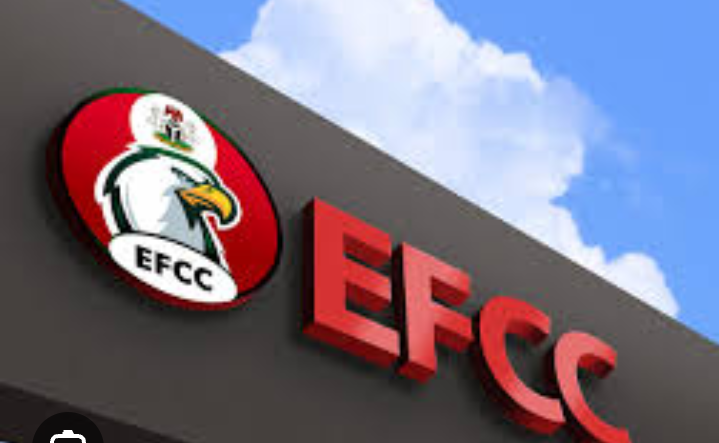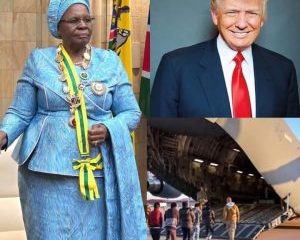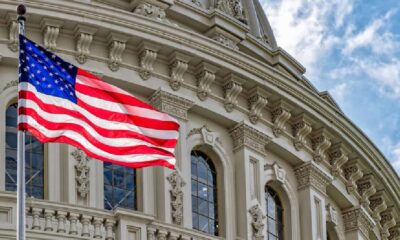News
Oil, gas companies owe FG $6bn, N66bn in unpaid revenues – NEITI report

The liabilities of oil companies to the Federation have increased to $6.175bn as of June 2024, a new report by the Nigerian Extractive Industries Transparency Initiative has stated.
It noted that in last decade, the Federal Government HAD spent a total sum of N15.8tn on price differentials and under-recovery (subsidy) on the importation of 200.85 billion litres of petrol into the country.
This revelation was contained in the 2022/2023 oil and gas industry report, presented by the agency on Thursday in Abuja. The report’s details were based on an audit of the petroleum industry conducted by the agency during the review period, according to the NEITI Executive Secretary, Dr Orji Ogbonnaya.
“A total of N15.87tn has been claimed as under-recovery/price differentials between 2006 and 2023, with 2022 recording the highest of N4.714tn,” the report read in part.
In his address at the event, Orji said the released report was not just a document but a call to action, marking a significant milestone in the ongoing efforts to promote transparency, accountability, and good governance in Nigeria’s extractive sector.
“This report, produced by the Nigeria Extractive Industries Transparency Initiative, comes at a critical time when the nation is intensifying its reforms in the oil and gas sector. The report provides valuable insights that will help guide policy, encourage robust public debate, and ultimately improve governance in the management of our natural resources,” he said.
Orji further noted the report contains several key findings and recommendations, which include the identification of revenue leakages, the need for improved compliance with regulatory frameworks, and suggestions for increasing transparency in oil and gas operations.
An analysis of the report showed that the government expended a considerable amount of its resources to pay for price differentials, also known as subsidies, between 2014 and 2023, while its petrol imports surged yearly increasing the cost of subsidies.
The report disclosed that the government paid N3.01tn for the petrol subsidy in 2023 compared to N4.71tn paid in 2022.
It stated that a total of 23.54bn litres of PMS (Premium Motor Spirit) were imported into the country in 2022, while 20.28bn litres were imported in 2023. This represents a reduction of 3.25bn litres, or a 14 per cent decline, following the removal of the subsidy.
“A detailed 10-year trend analysis (2014–2023) shows that the highest annual PMS importation into the country, 23.54bn litres, was recorded in 2022, while the lowest, 16.88bn litres, was recorded in 2017. A total of N15.87tn was claimed as under-recovery/price differentials between 2006 and 2023, with the highest amount, N4.714tn, recorded in 2022,” it stated.
A further breakdown showed that N480bn was spent as subsidies for the importation of 18.93bn litres of fuel in 2014. This figure reduced to N320bn despite an increase amount of fuel import of 19.27bn litres in 2015.
In 2016, the NEITI said the government spent N100bn to import 18.76bn liters of fuel while N140bn was disbursed for the for the import of 16.88bn liters of petrol products in 2017.
However, by the following year of 2018, the figure for subsidy increased drastically by N580bn to N720bn, for the import of 20bn liters. The figure dropped sharply to N580bn for an increased import of 20.60bn litres in 2019.
By 2020, the amount spent on subsidy reduced further to N130bn. The government imported a total sum of 22.05bn litres within this period.
In contrast, the government spent N1.16tn as subsidy on the import of 22.54bn liters in 2021, disbursed N4.71tn as a price differential for the import of 23.54bn liters in 2022, and N3.01tn for the import of N20.28bn liters in 2023.
It added that liabilities owed to the federation include $6.071bn and N66.4bn in unpaid royalties and gas flare penalties owed to the Nigerian Upstream Petroleum Regulatory Commission by August 31, 2024.
Additionally, there are outstanding petroleum profit taxes, company income taxes, withholding taxes, and VAT owed to the Federal Inland Revenue Service amounting to $21.926m and N492.8m as of June 2024.
Reacting to this, the Chairman of the Economic and Financial Crimes Commission, Olanipekun Olukayode, pledged to recover the owed debts of $6bn and N66bn to the federation.
The EFCC chairman also announced that he had approved the transfer of over N1bn derived from funds recovered through previous NEITI audits into the Federation Account.
Olukayode said, “Over the years as an anti-corruption agency in the country we are part of the success of the work of NEITI. Where the work stops at the level of presenting this report, then we take off from there to ensure that the recommendations therein and revelations therein particularly as relates to criminal infractions, and violation of our financial laws, it is taken up seriously.
“I am also happy to announce to you that as of yesterday (Wednesday), I still approved that over a billion so remitted to the Federal Government account as a result of the work of the last report of NEITI.”
On his part, the Secretary to the Government of the Federation, George Akume, assured stakeholders that the government would continue to grant NEITI the freedom to do fulfill its mandate to the country and the global Extractive Industries Transparency Initiative.
Akume said, “As the Chairman of the NEITI Board, I stand before you today to underscore the Federal Government’s respect for NEITI’s independence. While my role as Chairperson is a testament to the importance the government places on NEITI, it also signifies the commitment to ensure that NEITI operates independently, without interference, as mandated by the EITI standard.
“We have to safeguard this independence with great care and diligence, ensuring that NEITI can operate free from undue influence.”
News
Presidency slams El-Rufai over plot to woo Buhari

The Presidency and the ruling All Progressives Congress have dismissed the prospect of any opposition coalition unseating President Bola Tinubu in 2027, describing recent moves by former Vice President Atiku Abubakar and ex-Kaduna State Governor, Nasir El-Rufai, as futile and politically opportunistic.
Their reactions followed the high-profile visit by Atiku and El-Rufai—accompanied by former governors Aminu Tambuwal (Sokoto), Gabriel Suswam (Benue), Jibrilla Bindow (Adamawa), and Achike Udenwa (Imo)—to former President Muhammadu Buhari at his Kaduna residence last week.
Although Atiku maintained the visit was merely a post-Sallah courtesy call, political observers and members of the ruling party believe it was part of broader opposition coalition talks aimed at weakening Tinubu’s political base.
“There is a plan for the major political parties to come together and form a strong opposition. But it is not part of our visit,” Atiku told reporters.
In recent weeks, concerns have risen within the APC over speculated coalition efforts and the potential exit of the Congress for Progressive Change bloc from the party, following defections to the Social Democratic Party.
But the APC’s National Secretary, Senator Ajibola Bashiru, waved off the speculations in a phone interview with The PUNCH, questioning the credibility of the so-called CPC defection narrative.
“It is not true. Which CPC bloc did you people say is leaving? Was El-Rufai or Atiku a CPC member? Is our Vice National Chairman (North-West), Garba Datti Mohammed, and even former Governor Al-Makura not in the CPC? Have you heard any of them saying he is leaving?” Bashiru queried. “I don’t know why the media keeps giving these sorts of people unnecessary attention.”
Also reacting, President Tinubu’s Special Adviser on Policy Communication, Daniel Bwala, criticised the coalition talks, dismissing them as a desperate power grab by political misfits with no shared ideology.
“This coalition is an association to grab power,” Bwala said. “That’s why you will hear Peter Obi say they are only there to grab power. Tomorrow, he will say he is considering joining. As for my senior brother, El-Rufai, I like what he is doing. He is using them to play ping pong.”
Bwala added that internal resistance within the Peoples Democratic Party had already disrupted El-Rufai’s attempts to lure the opposition into the SDP.
“When El-Rufai came, he thought he would move all of them to SDP. But His Excellency (Sule Lamido) screamed, ‘Hold it there!’ He reminded them that it was the PDP that made El-Rufai minister twice and gave him political relevance. Now, he wants to drag them out? We’re not going anywhere,” Bwala recounted.
The Presidency insists that despite the rising political noise, President Tinubu remained focused on governance and would not be distracted by alliances it described as unstable and self-serving.
Credit: PUNCH
News
Court dismisses suit seeking Oyo monarch’s removal

An Oyo State High Court sitting in Ibadan has dismissed a suit contesting the nomination and installation of the Olugbon of Orile Igbon, Oba Francis Alao.
In his ruling on Monday, Justice K.A. Adedokun nullified the case for lack of jurisdiction.
Four members of the Akingbola family who instituted the suit contested the selection, appointment, and approval of Oba Alao as the Olugbon.
Justice Adedokun held that the court lacked the jurisdiction to entertain the matter, saying that the claimants had no locus standi to file the suit.
He ruled that the case was defective as it failed to include Surulere Local Government, the authority legally empowered to initiate the selection process and approve the traditional ruler’s appointment.
Oba Alao, whose installation as Olugbon was ratified by the Oyo State government and traditional institutions, is the current vice chairman of the Oyo State Council of Obas and Chiefs.
News
EFCC arraigns Chinese for giving false information in Lagos

The Economic and Financial Crimes Commission (EFCC) has arraigned a Chinese, Liu Beixiang, over alleged false information to an officer of the agency.
Liu was arraigned yesterday before Justice Ayokule Faji of the Federal High Court sitting in Ikoyi, Lagos.
The charge reads: “That you, Liu Beixiang (a.k.a Lao Liu), sometime in December 2024 in Lagos, within the jurisdiction of this honourable court, did give information, which you knew to be false, to an officer of the Federal Government of Nigeria in the discharge of his duties and thereby committed an offence contrary to Section 16 (1) of the Economic and Financial Crimes Commission (Establishment) Act, 2004.”
The defendant, however, pleaded not guilty to the offence when the charge was read to him. In view of his plea, the prosecution counsel, Babatunde Sonoiki, asked the court for a trial date and also prayed that the defendant be remanded in a correctional facility.
But in his response, the defence counsel, F.A. Dalmeda, informed the court of an application submitted to the EFCC seeking a plea bargain.
“We filed an application for a plea bargain, and we also filed a motion for bail, which the EFCC responded to this morning.
“We need a date for us to report on the plea bargain.
Consequently, Justice Faji adjourned the matter till June 23, 2025, for a report on the plea bargain and remanded the defendant in a correctional centre.
-

 News22 hours ago
News22 hours agoJust in: Namibia Moves to Deport Over 500 Americans in Bold Visa Policy Shift
-

 News22 hours ago
News22 hours agoRivers women rally in support of state of emergency
-

 News17 hours ago
News17 hours agoYou must refund N300m, Rivers State tells NBA
-

 Politics20 hours ago
Politics20 hours agoBwala accuses Senator Ndume of plans to defect from APC
-

 Foreign18 hours ago
Foreign18 hours agoUS orders 30-day registration for all foreign nationals or face jail, deportation
-

 News4 hours ago
News4 hours agoPeter Obi speaks as Benue govt. blocks humanitarian visit
-

 News22 hours ago
News22 hours agoSoldiers rescue 16 kidnapped passengers in Plateau
-

 News20 hours ago
News20 hours agoPolice sack officer who killed one, injured two in Calabar





